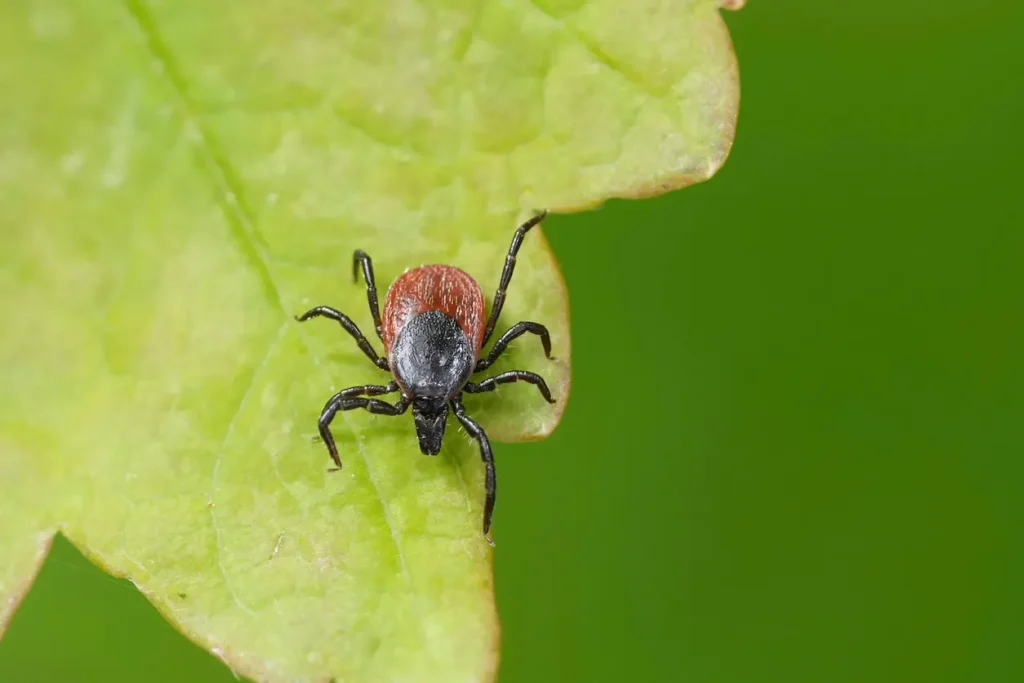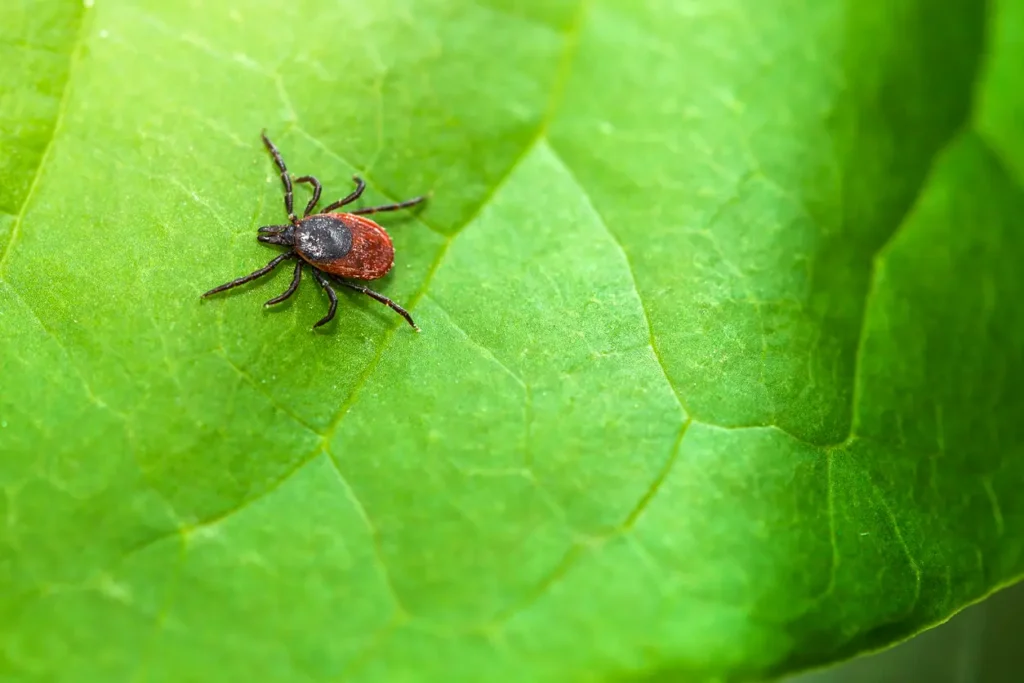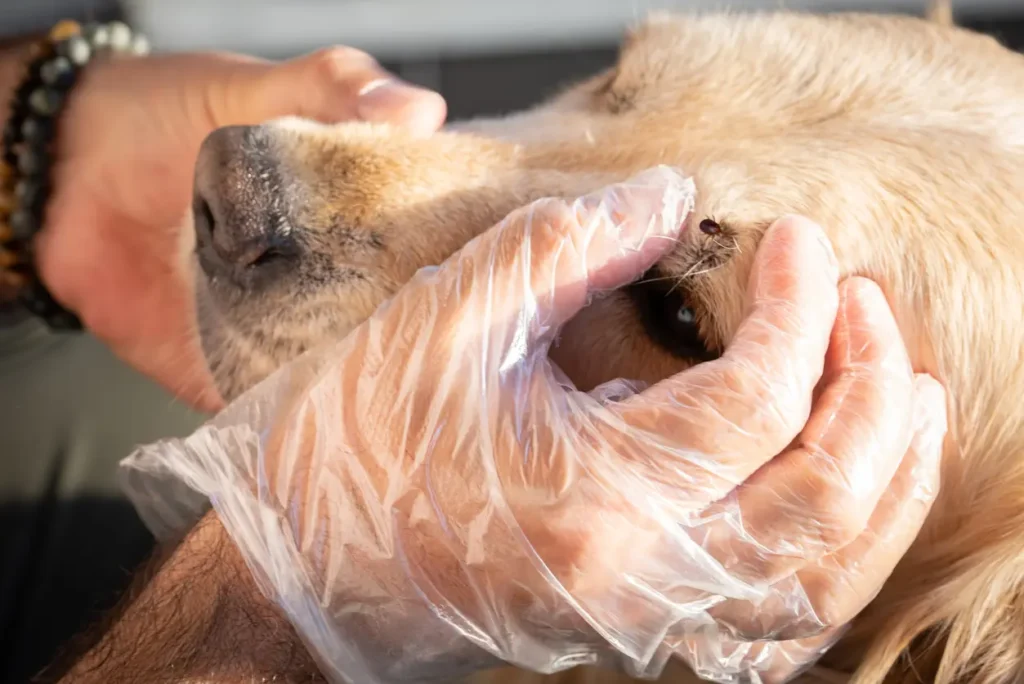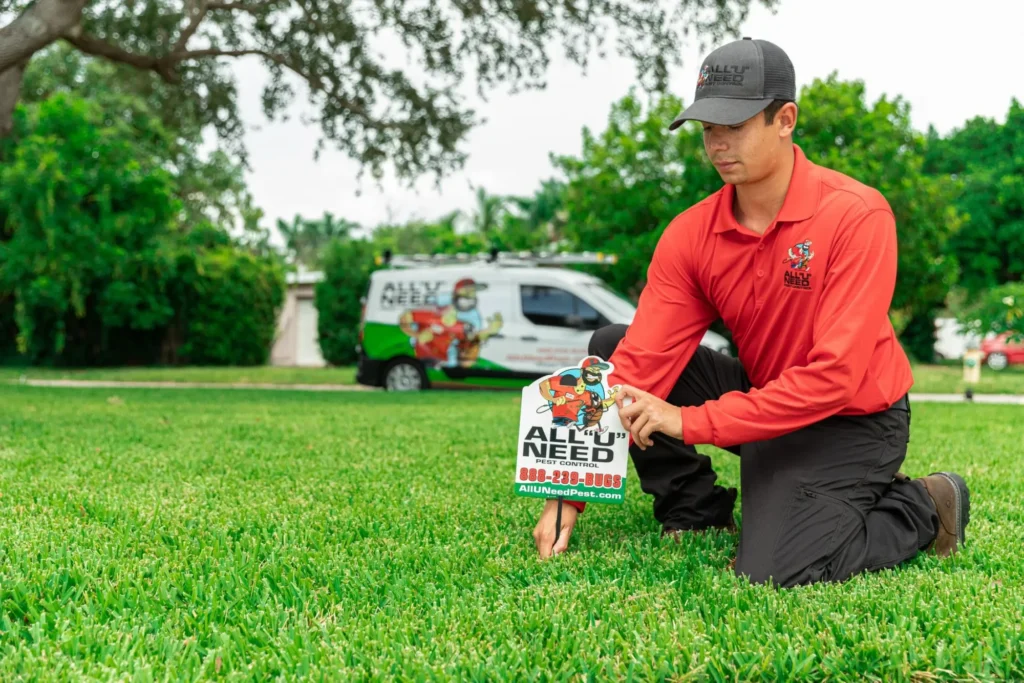
Tick Control Services in Cane Bay, SC
Cane Bay, SC, is a growing Lowcountry community that blends beautiful neighborhoods, family-friendly parks, and natural wetlands—but those same features create an ideal habitat for ticks. The warm, humid climate, shaded green spaces, and abundant wildlife corridors, from the Cooper River basin to nearby marshlands, make tick encounters common for residents. For families, outdoor enthusiasts, and pet owners, these pests are more than just a backyard nuisance—they carry serious health risks. That’s why having an effective, professional tick control plan in place is essential to protect your household and reclaim your yard.
All U Need Pest Control brings years of coastal pest expertise to the unique environment of Cane Bay. Our approach combines eco-conscious treatments with proven strategies to disrupt the tick life cycle, reduce populations in the areas where you live, walk, and play, and prevent re-infestations as the seasons change. Through precise inspections, targeted applications, habitat modifications, and homeowner education, we deliver immediate relief and lasting protection you can trust.
If ticks have made your lawn, garden, or patio uncomfortable, it’s best to act before populations spike with the next warm spell or rainfall. Call 1 (888) 239-BUGS or visit us online to schedule a complimentary consultation customized for Cane Bay and surrounding communities, including Cane Bay Plantation, Summerville, and nearby neighborhoods along the Lowcountry’s creeks and wooded trails.
Our motto is simple: “If they’re not dead, we’re not done!”
Pest Control Services in Cane Bay, SC
- Ant Control
- Bed Bug Control
- Beetle Control
- Cockroach Control
- Flea Control
- Home General Pest Control
- Hornet Control
- Millipede Control
- Mosquito Control
- Pantry Pest Control
- Rat & Rodent Control
- Scorpion Control
- Silverfish Control
- Spider Control
- Stink Bug Control
- Termite Control
- Wasp Control
- Winter Control

Understanding Tick Behavior
Ticks are parasitic arachnids that survive by feeding on the blood of mammals, birds, and even reptiles. In Cane Bay’s subtropical climate—marked by humid summers, mild winters, and steady rainfall—ticks remain active nearly year-round. Shady, moist environments like wooded trails, backyard edges, and greenbelt corridors are perfect hiding spots. By understanding their habits and life cycle, you can take smarter steps to reduce bites and create a safer environment for your family and pets.
In Cane Bay, the most common tick species include:
- Black-legged tick
- American dog tick
- Brown dog tick
- Lone star tick
These species thrive in Cane Bay’s mix of wooded paths, landscaped yards, and community green spaces. Black-legged ticks, known for spreading Lyme disease, prefer shaded, leafy areas and stay active even in cooler months. American dog ticks and lone star ticks often gather along edges—such as tall grass, fence lines, and trail margins—waiting for a passing host. Brown dog ticks, a nightmare for pet owners, can infest kennels and even make their way indoors, making year-round management especially important in a community where pets are part of the family.
Tick activity surges as temperatures climb and humidity rises, typically from spring through fall, though nymphs are especially active in late spring and summer. These tiny nymphs are easy to miss but still capable of transmitting disease, which is why consistent prevention and careful checks after spending time outdoors are critical in Cane Bay.
To help you recognize ticks:
- Adult ticks are about the size of an apple seed, while nymphs are roughly poppy-seed sized. Males are usually smaller than females.
- Ticks swell considerably when feeding, becoming more noticeable as they engorge with blood.
- Their bodies are divided into a small head and a larger abdomen.
- They have four pairs of legs—two near the head and two toward the rear of the abdomen.
Because Cane Bay has ample shade from trees and landscaped areas, proactive yard care combined with professional control can make a significant difference. At All U Need Pest Control, we design tick control programs that address every stage of their life cycle and focus on the specific harborage zones on your property, from wooded edges and crawl spaces to pet runs and ornamental beds.

Risks Associated With Ticks
Ticks in Cane Bay carry several dangerous diseases that can affect both people and pets. Understanding these risks helps you take preventive steps and act quickly if you’ve been bitten. While not every tick bite leads to illness, the area’s warm, humid environment and active outdoor lifestyle increase the chances of exposure, particularly for children, pet owners, gardeners, and anyone spending time in parks, yards, or wooded paths.
Lyme Disease
Lyme disease is transmitted by infected black-legged ticks. Early signs include fever, fatigue, headaches, and the distinctive “bull’s-eye” rash at the bite site. Without treatment, Lyme disease can progress to joint pain, neurological issues, and even heart complications. Regular tick checks, wearing proper clothing outdoors, and managing your property can lower your risk, while professional tick control helps reduce the likelihood of encounters around your home.
Rocky Mountain Spotted Fever
Rocky Mountain spotted fever (RMSF) is a bacterial illness commonly spread by the American dog tick. Symptoms include fever, headache, and a rash that spreads quickly. RMSF can become severe without prompt medical attention. If you find a tick attached or experience symptoms after a bite, seek medical care immediately. Reducing tick habitats around your home and scheduling professional treatments significantly lowers your risk.
Tick Paralysis
Tick paralysis occurs when a toxin in a tick’s saliva causes progressive weakness, which can escalate to serious symptoms, especially in pets. Removing the tick usually resolves the issue, but rapid detection is essential. Cane Bay pet owners should combine routine tick checks, vet-recommended preventives, and professional yard treatments to form a reliable line of defense.
While no single method eliminates the threat entirely, an integrated strategy—landscape modifications, personal precautions, and professional services—makes tick-borne illnesses far less likely for Cane Bay families.

Signs of Tick Infestation
Spotting a tick problem early is the key to preventing a small nuisance from becoming a major infestation. In Cane Bay’s neighborhoods, from manicured cul-de-sacs to shaded greenways, these warning signs may indicate your property needs professional attention:
Bites
Small red marks or irritated spots can signal tick bites. Some bites may develop swelling or a rash, and others can trigger symptoms like fever, headaches, or fatigue. While mild irritation may be soothed with an over-the-counter antibiotic ointment, any escalating symptoms should be evaluated by a medical professional right away.
Ticks on Pets
Pets often encounter ticks along fence lines, under decks, and near piles of wood or brush. Check your pets regularly, especially around the ears, collar area, tail base, and between the toes. Consistently finding ticks on your dog or cat is a strong sign that your yard is harboring a population. Our team can pinpoint these problem areas and create a plan to keep both your pets and your family safe.
Tick Eggs
Tick eggs are often laid in clusters in humid, hidden areas and are reddish-brown in color. While DIY remedies may eliminate some eggs, full eradication usually requires professional treatment because eggs and larvae can be deeply embedded in leaf litter, crawl spaces, or kennel zones. Preventing these eggs from hatching is critical to avoiding explosive population growth during the hot summer months.
Ticks in Your Yard
Tall grass, dense shrubs, and shaded ground cover are prime tick habitats. In Cane Bay, we frequently find tick activity near wood lines, landscaped beds, stacked lumber, and sandy edges that collect leaf litter. If you or your pets are picking up ticks after spending time in your own yard, it’s time to schedule a professional inspection.

Effective Tick Treatment Methods
At All U Need Pest Control, we combine science-based strategies with local knowledge to eliminate ticks and address the conditions that attract them. After a thorough inspection, we develop a treatment plan customized to your property layout, family routines, and the seasonal patterns unique to Cane Bay.
Habitat Modification
One of the most powerful ways to cut down on ticks is to modify the environment around your home. By removing the areas where ticks hide and breed, you greatly reduce the chance of infestation. Common habitat modification steps include:
- Seal entry points to keep ticks from entering your home.
- Trim back shrubs, grass, and plants that could harbor ticks.
- Clear away firewood, rocks, and leaves that provide shelter.
- Let more sunlight reach shaded areas to dry out moisture and deter ticks.
In Cane Bay’s humid climate, we also recommend creating buffer zones with gravel or wood chips between lawns and wooded edges, and keeping children’s play areas and dog runs in sunnier, better-drained areas.
Chemical Treatments
When habitat changes aren’t enough, targeted chemical applications can quickly reduce tick populations. Our treatments focus on tick travel routes—brushy edges, under-deck spaces, and along fence lines—to maximize results while keeping your family and pets safe.
Targeted Applications
Persistent infestations call for precision. We focus on high-risk areas where ticks nest or feed, choosing products based on the tick species and life stage. This focused approach ensures fast results and minimizes the chance of a quick rebound, which is especially important during Cane Bay’s long warm season.
Education
Effective tick control is a partnership. Our technicians show you where ticks are most active on your property, explain how to minimize pet exposure, and recommend small landscape changes that can yield lasting results—like relocating wood piles, adjusting irrigation, or modifying pet areas.
Our process follows three key steps:
1. Inspection
We start with a thorough inspection to locate harborage zones, travel paths, and risk areas. This property-specific assessment ensures your plan is tailored to your exact needs.
2. Treatment
We then treat the areas where ticks are most likely to hide and hunt, focusing on shady edges, crawl spaces, and areas where pets and children play. Timing and product selection are adjusted to match Cane Bay’s weather patterns for maximum effectiveness.
3. Maintenance
Year-round maintenance ensures populations stay under control. Seasonal visits allow us to adapt your protection plan to changes in weather, landscaping, and activity levels, preventing spikes during peak tick season.

Pet-Safe and Eco-Friendly Solutions
Your family, pets, and the surrounding Lowcountry environment come first. That’s why our programs are designed to deliver strong results while minimizing environmental impact.
Earth-Friendly Treatments
When possible, we use treatments made with botanically derived or reduced-risk ingredients. Our targeted application methods treat only the areas where ticks live, leaving your common spaces safe while delivering powerful results.
Minimum-Risk Pesticides
We avoid unnecessary blanket treatments, opting instead for products and placement strategies that balance safety with effectiveness. For households with children, seniors, or pets, this careful approach is essential.
IPM
Integrated Pest Management (IPM) ties all our services together—inspection, habitat modification, precise product application, and ongoing monitoring. In Cane Bay, IPM means accounting for local humidity patterns, shaded yards, and wildlife movement to create lasting, reliable protection with fewer callbacks.

How to Prevent Ticks
Professional treatments are most effective when paired with smart daily habits. In Cane Bay’s climate, these consistent practices help reduce tick encounters:
Change Your Landscaping
Keep lawns trimmed, clear dense vegetation, and remove leaf litter along fence lines and wooded edges. Create mulch or gravel borders around play areas and patios, and place dog runs in open, sunny zones to make your yard less appealing to ticks.
Invest in Tick Repellents for Pets
Follow your vet’s advice for year-round tick prevention, whether it’s topical treatments, collars, or oral medications. Regularly check your pets after walks or playtime in grassy or wooded areas, and wash their bedding often to reduce the risk of bringing ticks indoors.
Spray Repellent on Your Clothes
Apply an EPA-approved repellent to your clothing and exposed skin before working in the yard, gardening, or hiking. Treating shoes and socks is particularly effective since ticks often climb up from ground level.
Wear the Right Clothing
Lightweight, long sleeves and pants help protect skin from bites, and tucking pants into socks during yardwork or trail walks keeps ticks from reaching exposed areas. Light-colored fabrics also make it easier to spot ticks before they attach.
Check for Ticks After Outdoor Activities
Shower soon after returning indoors and check your body thoroughly, using a mirror for hard-to-see spots like the scalp, back of the neck, armpits, waistband, behind the knees, and ankles.
Avoid Areas That Might Contain Ticks
Stick to the center of walking paths and avoid brushing up against tall grass or shrubs. At home, keep walkways clear and prune back plants near patios and porches to reduce tick contact points.

Choose All U Need Pest Control for Tick Control in Cane Bay, SC
Ticks don’t have to be a fact of life in Cane Bay. If you’re dealing with bites, finding ticks on your pets, or noticing increased activity in shady areas of your yard, All U Need Pest Control is here to help. Our treatments are tailored to Cane Bay’s unique environment, balancing effective control with safe, eco-conscious practices and clear communication every step of the way.
From family homes in Cane Bay Plantation to newer builds along wooded greenways, we customize our approach to match your property and lifestyle. We don’t just deliver a quick fix—we provide lasting protection that lets you enjoy your outdoor spaces without worry.
Don’t wait for the next warm front to trigger a population surge. Call 1 (888) 239-BUGS or reach out online to schedule your inspection and receive a customized tick control plan for Cane Bay, SC. With All U Need Pest Control, you can reclaim your yard, protect your loved ones, and enjoy the outdoors again—tick-free.
Location Contact:
419 N Cedar St Summerville, SC 29483
Get Directions for 419 N Cedar StSummerville, SC 29483 on Google Maps843-489-8818
Call All "U" Need Pest Control